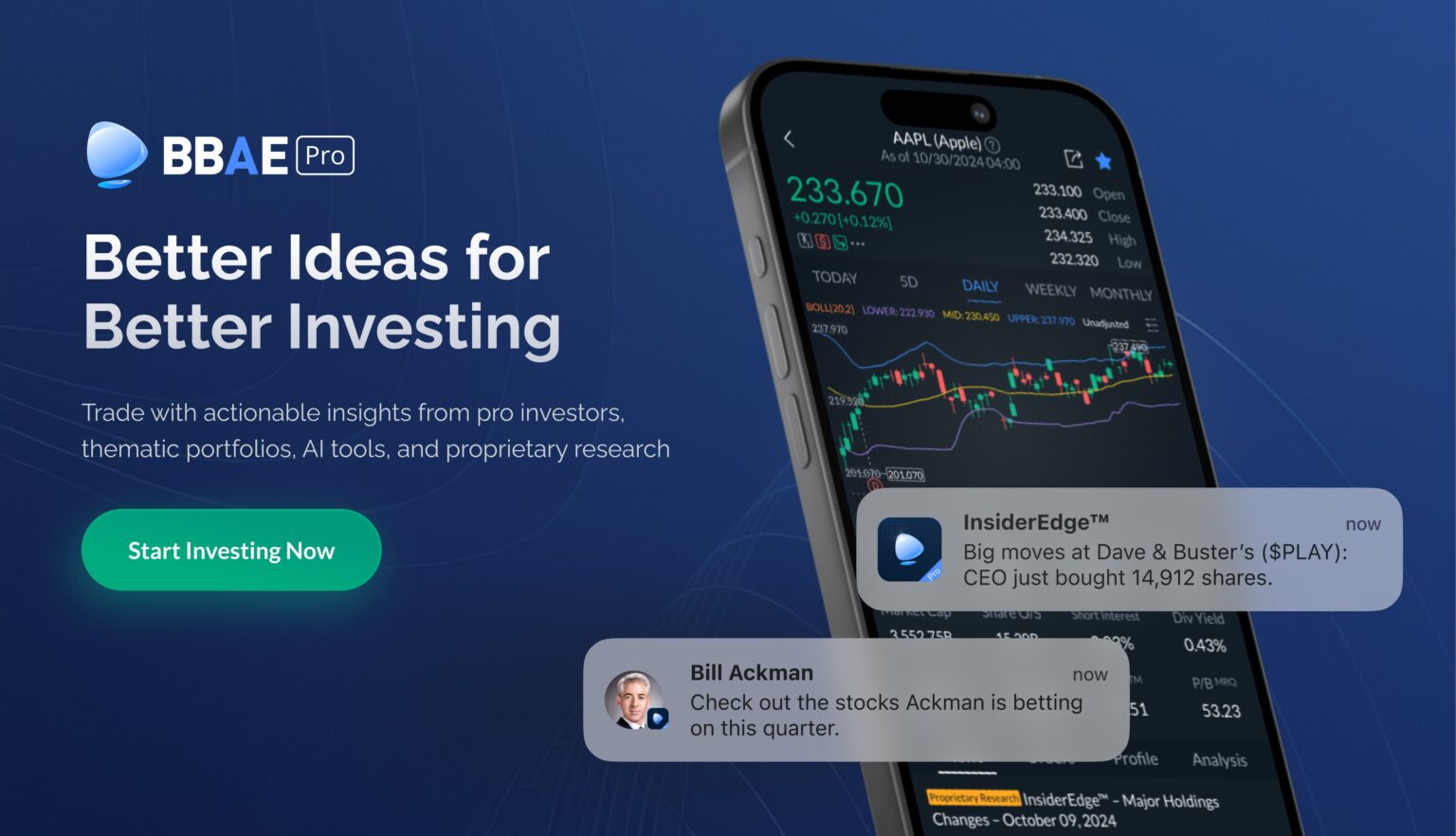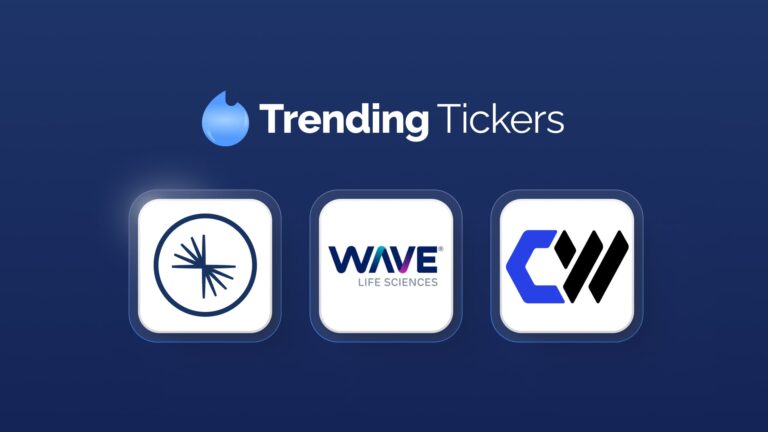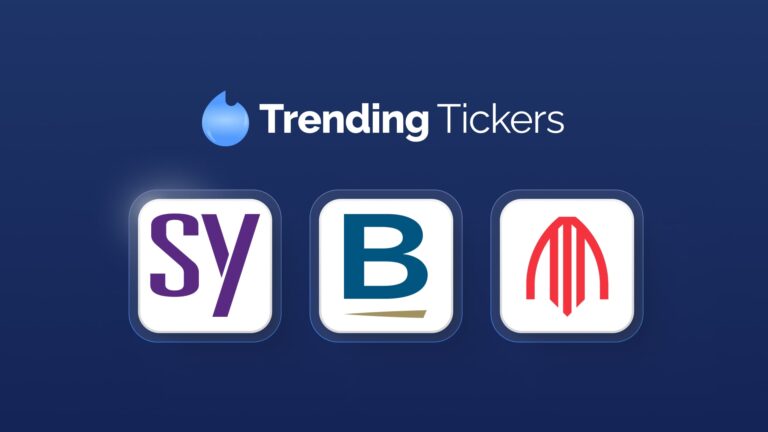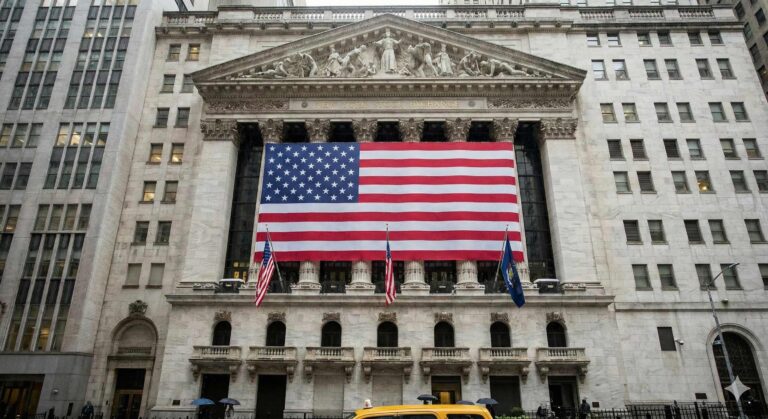Hot Sauce, Degenerates, and Noriel Roubini
I recently had the privilege of attending the Bloomberg 2024 ETFs in Depth conference. It was a tremendous conference – and where I had an epiphany about modern investing.
The first takeaway of the conference, which was hosted at the nice Bloomberg headquarters by Bloomberg’s ETF guru Eric Balchunus (who also co-hosts the ETF-focused Trillions podcast): ETFs are bigger than you think. Eric’s intro speech betrayed heavyweight stats: $1 trillion in inflows in not-even-finished-yet 2024, 660 new ETF launches, $35 trillion in global ETF assets by 2035 (a 10% annual growth rate – following 32% growth in 2024), and a possible overtaking of mutual fund assets in 5 years.
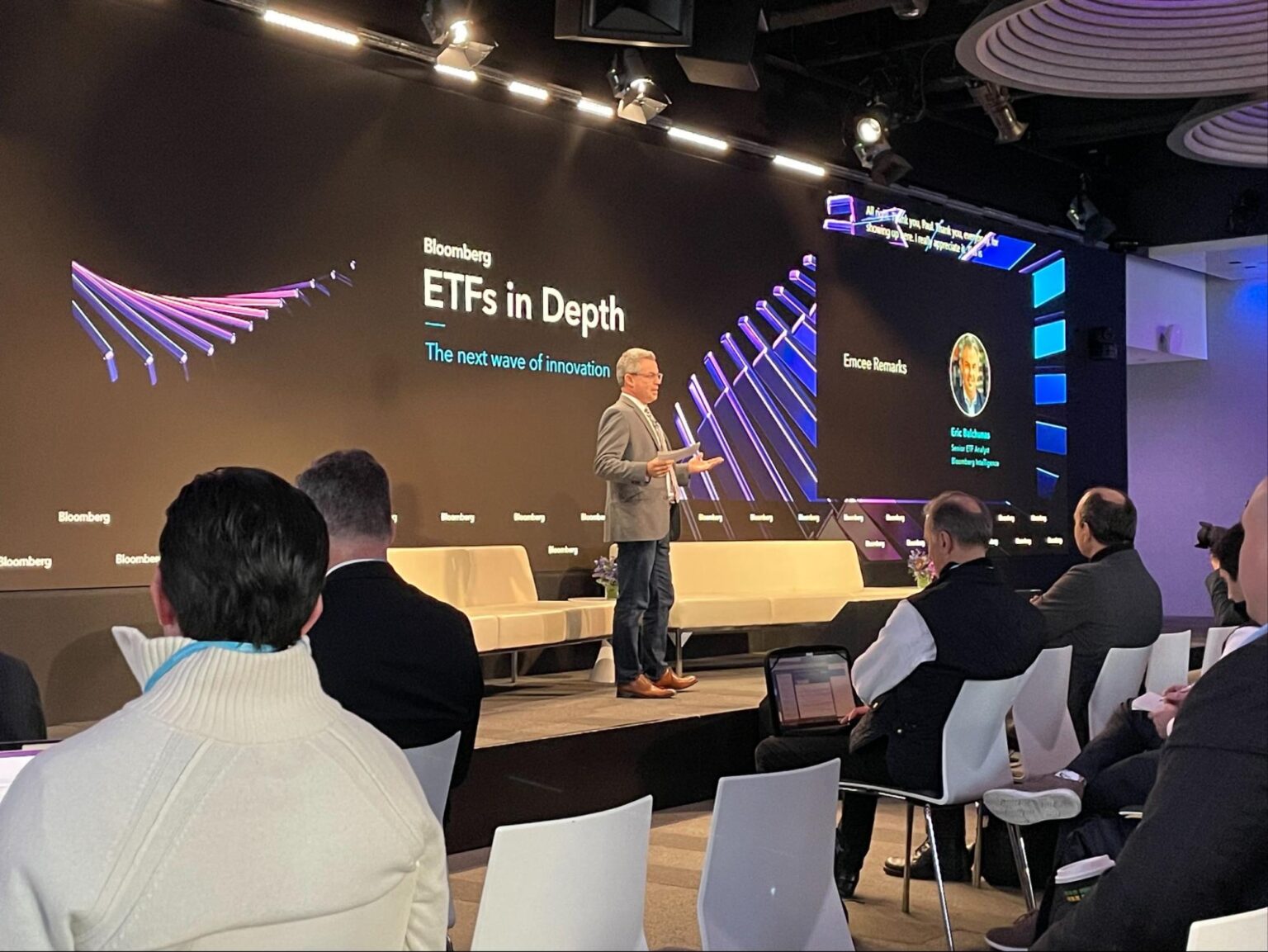
Eric had everyone’s attention.
ETFs are the Viking marauders taking over the investing world – just more gentle.
Well, not always gentle. And this gets to my epiphany.
From a human decision-making sense, ETFs, like stocks, are collections of reasons. Just as you might buy a stock because its company pays a dividend, has a certain market cap, has long-term management with high insider ownership, a high ROE, and whatever other factors you want to add in, you could just as easily buy an ETF containing multiple stocks sharing similar factors.
But what if your reason is just to have fun?
Gambling is a huge industry, and betting is practically as old as human nature.
You could buy risky individual stocks. You could buy options. You could buy crypto. Or you could buy ETFs that turbocharge some asset, such as giving 2x or 3x the daily returns of a stock.
These spicy ETFs are seeing explosive growth.
With 3,500 ETFs in existence, most geographies are covered, as are asset classes. Many new ETFs offer some unique performance, such as “zero downside” (at least on Day 1) buffered ETFs on the safe end, and leveraged, risky ETFs on the spicier end.
Eric calls them hot sauce – a term that’s become industry vernacular. And he feels they’re here to stay.
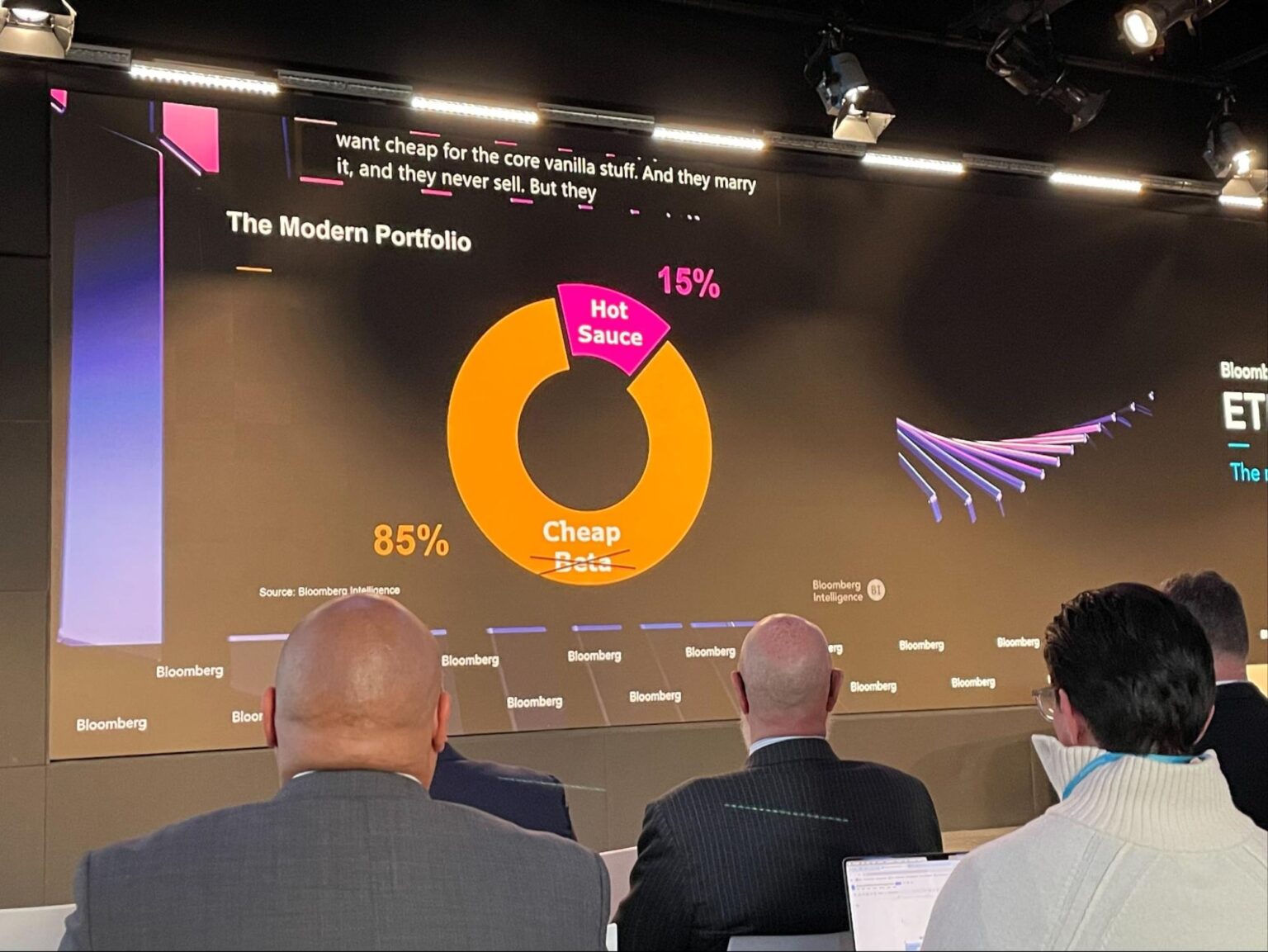
Eric’s assessment of today’s generic portfolio, which is likely correct for the younger set.
Eric is right.
I can’t deny that gambling is more fun than investing (though generally a lot less good for your long-term wealth), even if as a traditionally trained fundamental investor the idea of mixing investing and gambling has seemed impure to me. Truth is, it’s always happened, through risky stock and option trades, for instance. “Hot sauce” ETFs just give degenerates – another industry term for those who tend to trade risky things (often to excess) – one more tool.
The event had a slew of interesting speakers; I’ll recap the biggest two names.
Tom Lee

Tom Lee was surprisingly soft-spoken.
Tom Lee, former head equity strategist at JP Morgan, now runs Fundstrat and came to talk about his Fundstrat Granny Shot ETF (NYSE: GRNY), which is fairly concentrated with fewer than 40 holdings, and which got to $600 million in assets very quickly thanks to institutional, RIA, and family office investors – and, no doubt, Tom’s reputation.
Tom thinks there’s a “Trump put” in the stock market, and believes that active management will outperform passive in 2025 b/c intra-stock correlation is at or near all-time lows.
Nouriel Roubini
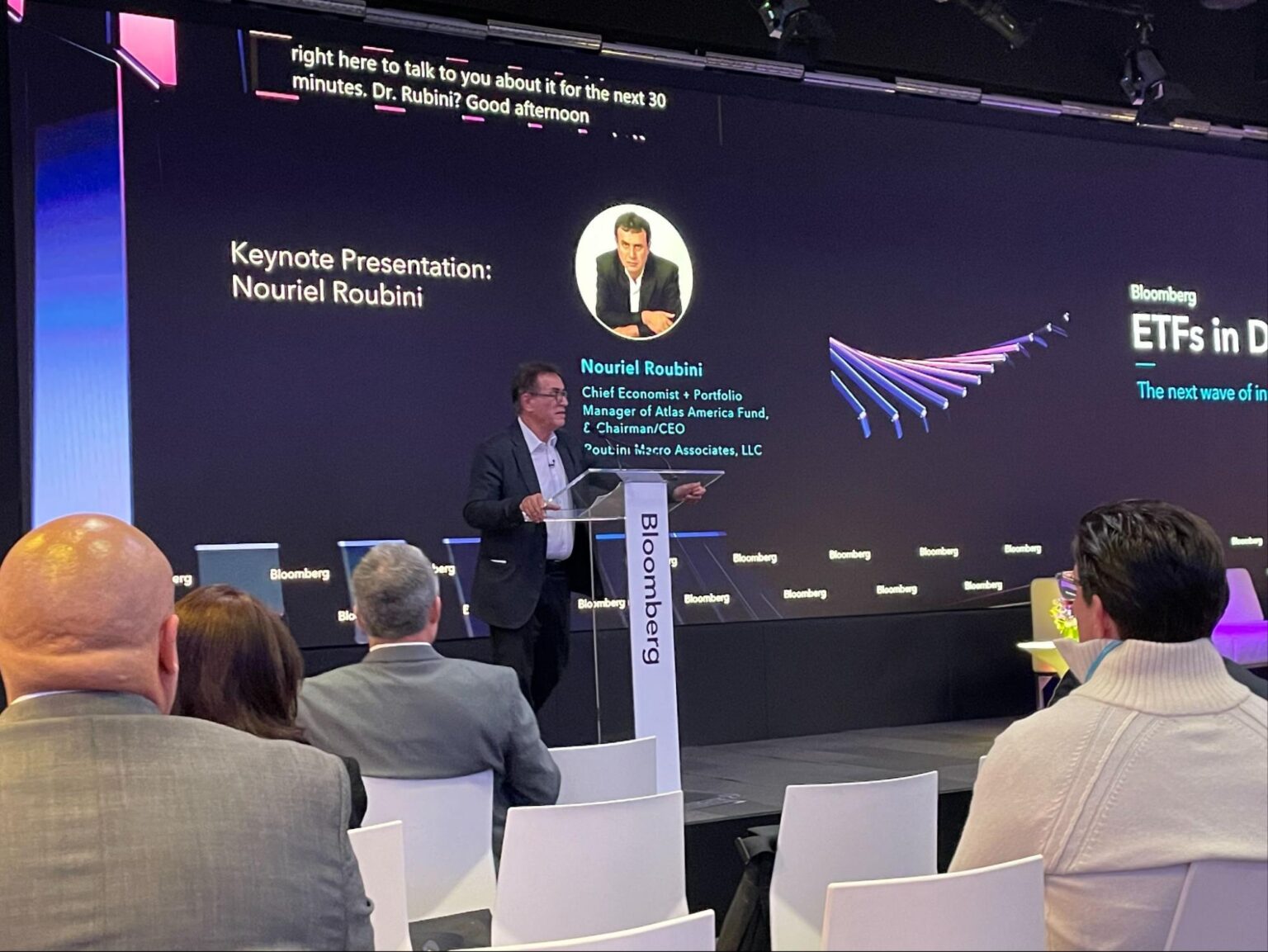
Dr. Doom prefers to be called Dr. Realist, but he’s optimistic about his new ETF, the Atlas America Fund (NYSE: USAF), which aims to prosper in the type of environment Roubini sees coming.
Specifically, he anticipates secular stagflation (stagflation is a nasty mix of stagnation and inflation).
He feels inflation will be moderately high, and his list of concerns on the supply side and demand side is not small:
- De-globalization
- An aging population; older people spend, but don’t produce
- Migration from south to north and poor to rich
- Geopolitical risk
- Climate change, bringing higher food and energy prices
- Pandemics
- Cyber warfare
- Populist backlash against liberal democracy; politics will become more pro-labor
- De-dollarization risk
- Too much debt and too high deficit
- Lots of defense spending
- “Robot revolution” = job loss to robots, necessitating a bigger social safety net
- Social strife
Roubini also worries that incoming President Trump could increase US public debt by $8 trillion (it’s roughly $34 trillion now), as well as both over stimulate the economy and interfere with the Fed, keeping inflation high.
In fact, Roubini sees 10-year Treasury yields, which are just over 4% now, possibly going to 8%, which would cause a fall in equities.
What Roubini says investors should do
- Go into TIPS or short-duration Treasuries because traditional long-duration fixed income will get killed
- Own gold
- Consider agriculture and commodities because of climate change
- Own real estate if inflation is expected to be moderate; large parts of North America are going to become less habitable
Roubini’s ETF is basically the survivalist’s fund: It offers exposure (for 75 basis points) to low-risk bonds, gold and other metals, and real estate that’s high above sea level.
Roubini is a glass-half-empty kind of guy, as you can probably tell. Many of his predictions may take a long time to come true, but that doesn’t mean they won’t, I suppose.
Overall thoughts
We will soon have more ETFs than mutual funds, and more than stocks. That may be weird, but I’m not sure that it’s bad. ETFs are generally tax-efficient and cheaper than hedge funds (and often mutual funds), and newer ETFs delve into strategies once reserved for high-fee funds. And while I’m still pondering the hot sauce for the volatility it adds to markets – I tend to think many of the degenerates came of investing age during low interest rates and Covid stimulus, which may have given them unrealistically high expectations – it’s simply a reflection of human nature, and thus here to stay. Economics is a social science.
This article is for informational purposes only and is neither investment advice nor a solicitation to buy or sell securities. All investment involves inherent risks, including the total loss of principal, and past performance is not a guarantee of future results. Always conduct thorough research or consult with a financial expert before making any investment decisions. Neither the author nor BBAE has a position in any investment mentioned.
